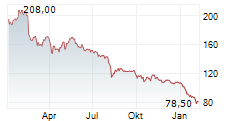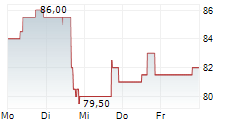
Originally published on GoDaddy Resource Library
By Alexandra Rosen and Ginger Siegel
NORTHAMPTON, MA / ACCESS Newswire / February 26, 2025 / Despite the economy's deep reliance on small businesses, it can be difficult as a small business owner to connect the dots between the solutions available and how to effectively unlock their potential.

America's small businesses have demonstrated double-digit growth in the last few years but continue to face common challenges in isolation, disconnected from a greater support system.
During the pandemic, organizations like Mastercard and GoDaddy were able to collect timely and reliable data on these businesses - as brick-and-mortars pivoted online, displaced workers started side hustles, and people pursued new passions - and our research shows less than half of small and microbusiness (those with fewer than ten employees) owners are aware of the resources available to them.
Small and micro business owners need a digital presence, access to capital, and support from friends, family and people who know how to harness the passion of an entrepreneur. Our research shows owners who are aware and take advantage of available resources tend to have higher revenues and greater optimism, underscoring the importance of a data-driven, customized approach.
The economic engine: Entrepreneurship is powerful and the data shows it
Small businesses are responsible for creating 64% of all new jobs, nearly half of the American workforce, and represent about 44% of the nation's GDP, fostering innovation, driving competition, and providing personalization that large corporations often cannot match.
GoDaddy's Venture Forward research initiative has found at the county level, each entrepreneur with a digital microbusiness creates seven or more jobs by hiring directly, indirectly, or creating more demand and spending in their communities. In addition, they increase median household income growth and unemployment over the years. When these businesses struggle or close, unemployment rates rise, and community vitality lowers.
Community impact
Small businesses are the fabric of our communities, sponsoring local events, supporting charities, providing personalized services and acting as a catalyst for community spirit. Venture Forward also found that one in four online microbusinesses only serve customers in their city or neighborhood.
Digital momentum/digital readiness
The COVID-19 pandemic highlighted a significant gap in the digital capabilities of small businesses. At that point, 11 million small businesses lacked a robust digital presence, hindering their ability to adapt to changing consumer behaviors during lockdowns.
As consumers shifted to online shopping, businesses without an online footprint found themselves at a severe disadvantage. The closure rate for these businesses was notably higher than those with an existing digital presence before the pandemic, primarily because they couldn't reach their customers through digital channels.
Having an online presence is no longer optional for small businesses - it's a necessity to reach customers who are increasingly spending online. Small businesses must invest in digital tools like social media, ecommerce platforms, and digital marketing strategies to compete with larger corporations.
With the rate of new online microbusinesses exceeding the population growth by more than five-to-one in the last four years, competition is at an all-time high, but so is opportunity. As inflation has eased this year, the Microbusiness Activity Index has seen website activity increase across the United States.
Access to capital/financial planning
The motivations and backgrounds of small business owners have continued to expand, but the challenge of obtaining capital and funding has remained. Only 57% of loan applications are approved, despite that the majority need less than $5k to get started, and 82% of SMBs go out of business due to a lack of cash flow. Research also found that those who invest more in the beginning tend to make more in monthly revenue.
Entrepreneurs need to manage their cash flow and front-end operations well - Mastercard's Digital Doors can help with these aspects. Key advice includes not intertwining personal finance with business and avoiding maxing out personal credit cards.
There are many options for different types of small business funding, and it's important to understand what's available. Capital providers also need to continue innovating in their underwriting and application processing approach to remove barriers for small and microbusinesses.
The role of technology
Small business owners often juggle multiple roles without the luxury of dedicated departments, interacting with a number of platforms simultaneously. GoDaddy and Mastercard each provide a complementary, connected digital ecosystem that simplifies operations and streamlines processes.
For instance, easy-to-use digital platforms and generative AI tools can empower businesses to manage their online presence effectively with custom posts and strategies, connecting with customers faster and driving sales.
Our vision
The pandemic took its toll on businesses of all sizes, but we're seeing a major boom in entrepreneurship activity across both rural and urban areas. The number of new digital microbusinesses has grown up to 16% in the last four years. These enterprises make up 92%of registered companies in the US and their success is vital for a robust economy. Making digital tools and resources accessible is key to helping small businesses thrive in a digital world.
At GoDaddy and Mastercard, we are committed to ensuring that small businesses have the support they need to succeed, from easy-to-use digital platforms to marketing resources, cybersecurity solutions, and financial services. By doing so, we can help contribute to our communities and drive economic growth.
By standing with those who empower us to shop our neighborhood businesses and online, we can collectively invest in the future and fortify the resilience of our communities.
Alexandra Rosen
Alexandra Rosen leads GoDaddy Venture Forward, a research initiative that quantifies the impact of over 20 million online microbusinesses on local economies and provides insights into the needs of these entrepreneurs. As senior director, she collaborates with economists, policymakers, and think tanks to support small businesses through informed policies and programs. With a background in marketing at Cisco and Google, Alexandra is committed to using technology to make opportunities more inclusive, and her work has been featured in media such as the New York Times and HBR.
More Articles by Alexandra Rosen
Ginger Siegel
Ginger Siegel is the North America Small Business Lead for Mastercard, bringing over 30 years of industry leadership experience. Previously, she was a leader in the Financial Services group at Deloitte, specializing in Fintech, bank partnerships, and small business banking strategy. Her extensive career includes executive roles at multinational and regional banks, focusing on strategy, execution, and revenue growth.
More Articles by Ginger Siegel
View additional multimedia and more ESG storytelling from GoDaddy on 3blmedia.com.
Contact Info:
Spokesperson: GoDaddy
Website: https://www.3blmedia.com/profiles/godaddy
Email: info@3blmedia.com
SOURCE: GoDaddy
View the original press release on ACCESS Newswire



